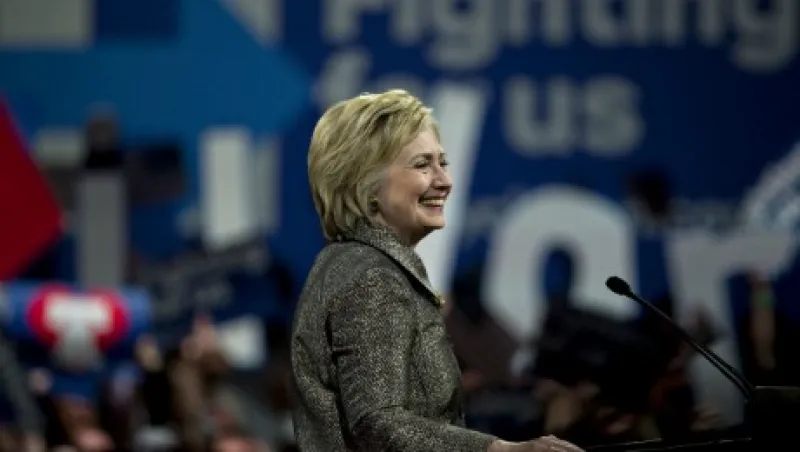The shape of the U.S. presidential race grew a lot more clear Tuesday night. After securing victories in five state primaries by a wide margin, Donald Trump now has 998 of the 1,237 required delegates to secure the Republican Party nomination. Meanwhile, former secretary of state Hillary Clinton won four out of five Democratic races to increase her lead over Vermont Senator Bernie Sanders. With the Indiana primary looming, Trump in his victory speech reiterated his commitment to protectionist policies, citing an Indianapolis manufacturing company that has been shifting production to Mexico. Unless Texas Senator Ted Cruz and Ohio Governor John Kasich succeed in thwarting Trump’s drive to the nomination and forcing a contested convention, a race for the presidency between Trump and Clinton appears increasingly likely.
No action anticipated from Fed. The Federal Open Market Committee will release a policy statement this afternoon with consensus forecasts for no change in language over the timing of future hikes and with derivatives markets suggesting that investors expect no change prior to June. What investors will be focused on is any shift in language indicating concerns over growth abroad, offsetting positive inflationary signals at home.
Schwab pulls plug on load funds. Yesterday San Francisco discount broker Charles Schwab Corp. confirmed reports that it will cease selling mutual funds with embedded sales commissions as of May 2. While load-bearing fund shares have fallen from favor in recent years as more retail investors opted for fee-only advisor relationships, Schwab’s decision was prompted by new rules introduced earlier in April by the Department of Labor regarding oversight of retirement accounts.
Comcast to buy DreamWorks. The Wall Street Journal reported today, citing unnamed sources, that cable giant Comcast Corp. is negotiating the acquisition of DreamWorks Animation SKG for roughly $3 billion. The move to acquire the studio responsible for the Shrek and Kung Fu Panda franchises would make Comcast a competitor to powerhouse Walt Disney.
IMF warns over Chinese debt policies. The International Monetary Fund released a report yesterday that warned that Beijing’s slow response to bad private-sector debt practices places potential losses from nonperforming loans as high as 7 percent of current gross domestic product. The report’s authors specifically raised concerns that debt-for-equity swaps by lenders may backfire in specific instances by allowing so-called zombie companies to continue operating.
Barclays posts poor results. London-based Barclays today reported first-quarter results that included a 7 percent decline in profits versus the same period in 2015 as investment banking operations, particularly fixed-income trading, suffered in a poor market environment. Senior Barclays executives reiterated a commitment to shedding noncore business lines including a French retail franchise that the bank is currently in talks to sell to London-based AnaCap Financial Partners.
Portfolio Perspective: Party Favors... — Tom Stringfellow, Frost Investment Advisors
This past week I attended an economic and political conference in Washington, and had the opportunity to hear a number of congressional leaders share their outlooks for the upcoming year. Noticeably absent were presidential candidate predictions — unless pressed — although each speaker unreservedly toed the party line. Just a few of the speakers at the gathering included Arizona Senator John McCain, Oklahoma’s James Lankford and Rhode Island’s Sheldon Whitehouse. While there were a number of glaring differences depending on political perspectives, there were a number of common threads across both parties. Commonly held topics that they seemed to agree on included fixing the tax structure — making it more understandable and fair — boosting anemic economic growth and improving homeland security. Quite a few speakers also discussed burgeoning debt levels, primarily driven by entitlements, with many noting how unsustainable mandatory spending levels would become over the next few years. A few also commented on the political suicide potential for any party trying to tackle possible solutions head-on. Of course, the speakers were also some distance apart as to how to fix these problems, where and how they started and which party was more capable of offering the best solution. This might explain a nervous market, antsy investors and a disgruntled electorate.
Tom Stringfellow is the president and chief investment officer of Frost Investment Advisors in San Antonio, Texas.






